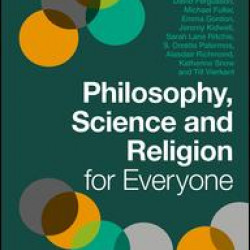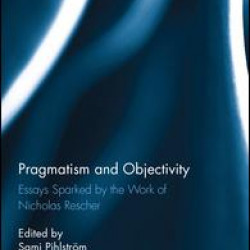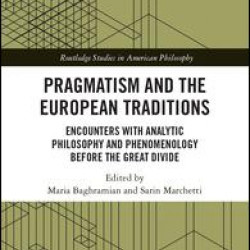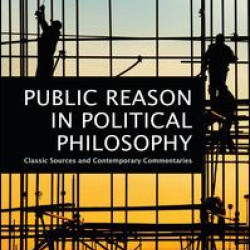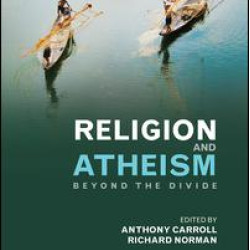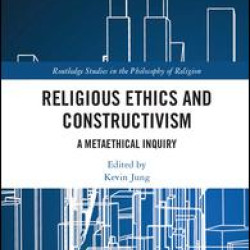Philosophy
Brand: Taylor & Francis
Model: 9781138234215
Philosophy, Science and Religion for Everyone brings together these great truth-seeking disciplines, and seeks to understand the ways in which they challenge and inform each other.
Key topics and their areas of focus include:
• Foundational Issues – why should anyone care about the science-and-relig..
₹1,467.88
Brand: Taylor & Francis
Model: 9781138655232
Pragmatism and Objectivity illuminates the nature of contemporary pragmatism against the background of Rescher’s work, resulting in a stronger grasp of the prospects and promises of this philosophical movement. The central insight of pragmatism is that we must start from where we find ourselves and ..
₹11,934.00
Brand: Taylor & Francis
Model: 9781317223573
Pragmatism and Objectivity illuminates the nature of contemporary pragmatism against the background of Rescher’s work, resulting in a stronger grasp of the prospects and promises of this philosophical movement. The central insight of pragmatism is that we must start from where we find ourselves and ..
₹0.00
Brand: Taylor & Francis
Model: 9781138094109
The turn of the twentieth century witnessed the birth of two distinct philosophical schools in Europe: analytic philosophy and phenomenology. The history of 20th-century philosophy is often written as an account of the development of one or both of these schools, as well as their overt or covert mut..
₹11,016.00
Brand: Taylor & Francis
Model: 9781351603539
The turn of the twentieth century witnessed the birth of two distinct philosophical schools in Europe: analytic philosophy and phenomenology. The history of 20th-century philosophy is often written as an account of the development of one or both of these schools, as well as their overt or covert mut..
₹0.00
Brand: Taylor & Francis
Model: 9781351811323
For the past fifteen years, Aikin and Talisse have been working collaboratively on a new vision of American pragmatism, one which sees pragmatism as a living and developing philosophical idiom that originates in the work of the "classical" pragmatisms of Charles Peirce, William James, and John Dewey..
₹0.00
Brand: Taylor & Francis
Model: 9780415793551
For the past fifteen years, Aikin and Talisse have been working collaboratively on a new vision of American pragmatism, one which sees pragmatism as a living and developing philosophical idiom that originates in the work of the "classical" pragmatisms of Charles Peirce, William James, and John Dewey..
₹11,016.00
Brand: Taylor & Francis
Model: 9781351617338
When people of good faith and sound mind disagree deeply about moral, religious, and other philosophical matters, how can we justify political institutions to all of them? The idea of public reason—of a shared public standard, despite disagreement—arose in the seventeenth and eighteenth centuries in..
₹0.00
Brand: Taylor & Francis
Model: 9780415855594
When people of good faith and sound mind disagree deeply about moral, religious, and other philosophical matters, how can we justify political institutions to all of them? The idea of public reason—of a shared public standard, despite disagreement—arose in the seventeenth and eighteenth centuries in..
₹6,608.68
Brand: Taylor & Francis
Model: 9781138891913
Arguments between those who hold religious beliefs and those who do not have been at fever pitch. They have also reached an impasse, with equally entrenched views held by believer and atheist - and even agnostic - alike. This collection is one of the first books to move beyond this deadlock. Special..
₹2,844.88
Brand: Taylor & Francis
Model: 9781315521480
Arguments between those who hold religious beliefs and those who do not have been at fever pitch. They have also reached an impasse, with equally entrenched views held by believer and atheist - and even agnostic - alike. This collection is one of the first books to move beyond this deadlock. Special..
₹15,309.00
Brand: Taylor & Francis
Model: 9781138103412
In metaethics, there is a divide between those who believe that there exist moral facts independently of human interests and attitudes (i.e., moral realists) and those who don’t (i.e., antirealists). In the last half century, the field of religious ethics has been inundated with various antirealist ..
₹10,557.00


